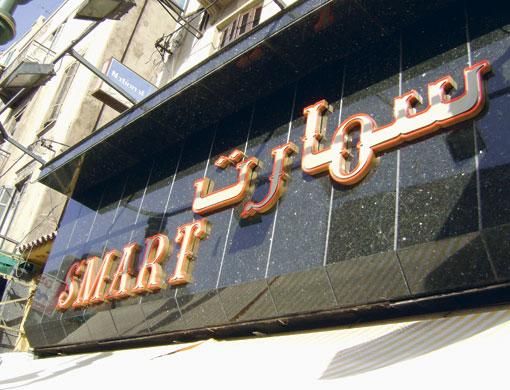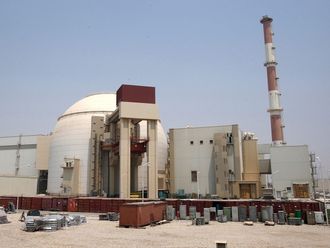Cairo: It was a simple question that I know I posed correctly in Arabic.
"What time does the movie Stolen Kisses begin?" I asked the guy at the ticket booth in my best Egyptian dialect.
"At 7 o'clock," he responded in heavily accented and barely understandable English, as if I hadn't just spoken to him in Arabic.
"How much are the tickets?" I said in dialect, refusing to speak to him in English.
"Twenty Egyptian pounds," he answered, again in English.
I had come to Cairo for a month to do an intensive Arabic course after studying the language three years at UCLA, and had become accustomed to such linguistic battles.
With a small group of men hovering to watch this ridiculous conversation unfold, it was time to employ a surprise manoeuvre that would be my best chance for linguistic triumph.
I shook my head in disbelief, and then, switching to Modern Standard Arabic, and speaking louder, asked the man in a sarcastic tone: "Do you even speak Arabic?"
The question produced laughter from him and the audience, but it had the desired effect: By asking in the written and more formal Arabic that only educated Arabs are truly versed in, I had changed the equation.
Instead of trying to show me he spoke English, he was now on the hook to show me he had a good level in standard Arabic - in essence, that he had a certain level of education.
"Yes, of course," he said in Arabic, the standard variety, no less. "You are funny."
I told him that since we were in Egypt I figured we might as well speak Arabic. We both had a laugh, and after a few more exchanges we shook hands. I told him I would come back later to see the movie.
Trying to learn Arabic in an Arabic-speaking country can be difficult. For one thing, Egyptians jump on any chance they get to practice English, even if they only know a few words.
And spoken Arabic dialects are hard to master no matter which country you try to learn them in, because they're often so wildly different from standard Arabic that they seem like a different language.
Most universities in the United States and other English-speaking countries only teach standard Arabic, and not the dialects of particular countries.
Standard Arabic is the written language of schools, diplomacy, banking and news. It's not, however, a language that anyone outside of those circles speaks on a daily basis.
So does it make sense to learn it? Wouldn't it just be better to study a dialect? These are questions that perplex every student of Arabic.
My short answer is that if you just learn a dialect (likely on your own, because few places teach them), you may be limited to that one country.
Also, dialects are not widely written. You might be able to read a street sign, but not a newspaper or magazine if you don't know formal Arabic.
The reality is that the Arab world has a standard written language and then several spoken dialects.
Of course, studying Arabic in Egypt will help students develop a much better grasp of the language than anything they could do in the United States.
Egyptians may be enamoured of English and have a hard-to-master dialect, but Arabic is the national language and it's alive and well.
Add to that fun and very social people - not long after meeting someone, you often find yourself at a cafe sipping tea and smoking flavoured tobacco out of a hookah pipe - and you've got a formula for what any stint abroad should be: an adventure.













